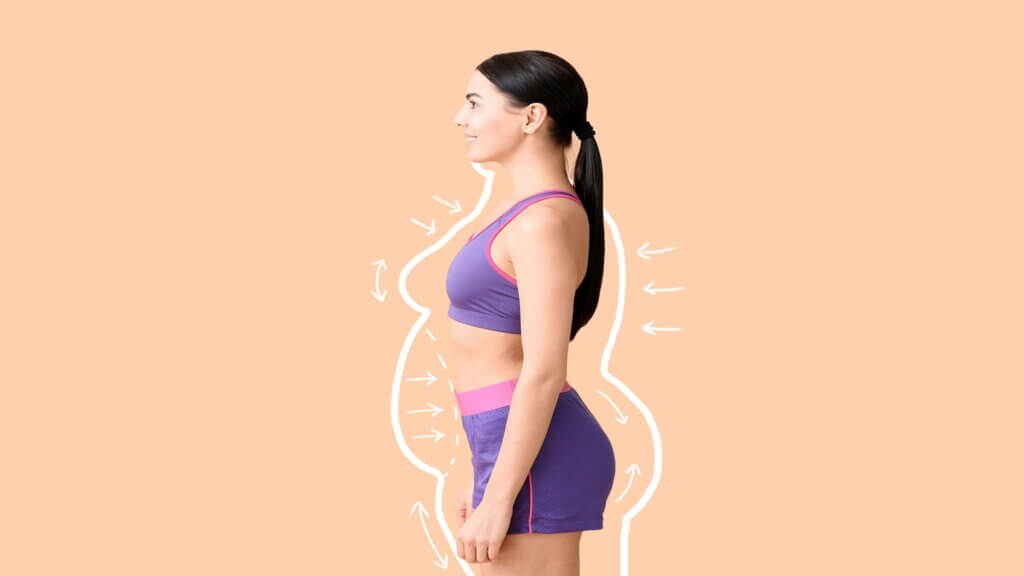People who are obese or overweight are at greater risk of developing serious health conditions. These include diabetes, stroke, heart disease, hypertension, osteoarthritis, and other chronic problems.
Being obese is unhealthy because it puts more pressure on the heart. This can increase cholesterol and blood pressure, leading to cardiovascular disease. One of the best ways to prevent being obese and developing other health complications is to lose extra pounds.
Start your journey by developing a healthy and sustainable weight-loss program. Focus on components essential to losing weight. This includes exercise and a meal plan rich in vital nutrients that could help with weight loss.
In this post, you’ll learn how to design a healthy weight-loss program. Follow the steps below to create a journey designed to meet your needs, lifestyle, and goals.
1. Set Realistic Goals
Setting realistic goals is essential to effective weight loss. But first, what does the term ‘realistic’ mean? Realistic goals are achievable goals within a specific amount of time.
For instance, losing 1-2 pounds per week is a realistic goal. Generally, you need to burn 500-1000 calories a week to lose 1-2 pounds per week, which you can achieve through regular exercise and a reduced-calorie diet.
A realistic weight-loss goal depends on your weight. Losing 5% of your current body weight is considered doable, at least for a starting goal. If you weigh 200 pounds, you need to lose at least 10 pounds per week. Losing even as little as 5% of your current body weight is enough to reduce the risk of developing chronic health conditions, such as type 2 diabetes and cardiovascular disease.
When you set a goal, consider the process and outcome goals. Process goals are more important than outcome goals because your lifestyle is crucial to weight loss.
2. Customize A Weight-Loss Diet Plan
Diet plays a vital role in your weight-loss journey. An effective weight-loss diet plan should focus on essential nutrients that may help you lose weight. These include the following:
- Magnesium
Magnesium helps regulate and normalize metabolism, helping you lose weight over time. It also reduces insulin resistance, which aids the body in breaking down glucose molecules. This helps prevent fatigue, weight gain, and other health complications.
Foods highest in magnesium include whole grains, legumes, fruits, vegetables, nuts, and seeds. You can also take magnesium supplements but talk to your doctor first to avoid possible complications.
- Vitamin D
Vitamin D, or calciferol, is an essential fat-soluble nutrient with a wide range of health benefits, including stronger bones and an immune system. Aside from that, it could also support weight loss. It helps prevent weight gain and aids in reducing body fat.
Foods rich in vitamin D include salmon, trout, milk, beef liver, fortified juices, tuna, cod liver oil, and sardines. You can also boost your vitamin D levels by increasing your exposure to sunlight. Your body uses UV as a precursor in producing vitamin D naturally.
- Vitamin C
Vitamin C or ascorbic acid, helps boost the immune system and prevent disease. It may not help reduce weight, but as an antioxidant, it helps protect your cells and ensures a healthy and sustainable weight-loss journey.
Vitamin C also helps people who are trying to lose extra pounds by preventing inflammation and the formation of free radicals. Free radicals can cause hormonal problems and insulin resistance, which promotes weight gain.
- Carotenoids
Carotenoids refer to biologically active compounds, such as lutein, lycopene, and beta-carotene. Experts believe that an increased carotenoid intake can reduce body mass index, leading to lower body weight.
This is probably due to the nature of carotenoids being an antioxidant. Like vitamin C, carotenoids can help reduce inflammation associated with weight loss. This prevents insulin resistance and hormonal imbalances, promoting weight loss.
Carotenoids can be found in sweet potatoes, carrots, red bell pepper, mango, pumpkin, and cantaloupe.
- Iron
Iron enables hemoglobin, which is an essential component in red blood cells, to transport oxygen throughout the body. This promotes energy metabolism, encourages weight loss, and lowers body mass index.
Healthy sources of iron include dark chocolate, lentils, beef, kidney beans, chickpeas, white beans, fortified products, and tofu. If you’re sensitive to any of these sources, consider taking iron supplements and vitamins. But consult a doctor first to prevent health complications.
In addition to these essential nutrients, here are some weight-loss diet tips you might need to consider:
- Reduce added sugar intake as much as possible.
- Choose low-fat food products.
- Always pick whole grains over refined grains.
- Consume healthy fats, such as olive oil, avocado, nuts, nut oils, nut butter, and vegetable oils, in moderation.
By following these tips, you can achieve a safe and healthy weight-loss diet program.
3. Set Time For Exercise
Exercising is an effective way to shed extra pounds. It also offers a wide range of health benefits, such as strengthening bones, improving mood, promoting a healthy heart, regulating blood sugar levels, and lowering the risk of chronic disease.
Below are some of the best exercises worth including in your weight-loss journey:
- Walking
Walking is a great way to lose weight—and for many reasons, such as:
- It doesn’t require special equipment.
- It doesn’t overwhelm the body.
- It’s easy and convenient—even people who aren’t physically active can do it.
- It can be done anytime, anywhere.
- It’s a low-impact exercise—it won’t put a strain on your joints.
A thirty-minute moderate walk can help burn 175 calories. Try to walk at least 3-4 times per week, and increase the frequency and duration of your walks from time to time.
- Jogging
Jogging is more intense than walking. A 30-minute jog can help an average person burn around 280 calories. If you want more intense exercise, consider running, which can burn 360 calories every 30-minute run.
What’s great about jogging is that it helps burn visceral fat. This type of fat is unhealthy because it covers essential body organs, increasing the risk of developing chronic diseases, such as cardiovascular disease and type 2 diabetes.
To get started, try to jog or run for 20-30 minutes at least three times per week. Make sure to take a break whenever necessary. Gradually increase the frequency and duration from time to time.
- Weight Training
Weight training is another popular option for people who are trying to shed extra pounds. A 30-minute weight training can burn around 105 calories. In addition, it promotes muscle growth and builds strength, which can improve resting metabolic rate or the amount of calories your body can burn at rest.
Examples of weight training exercises include push-ups, sit-ups, triceps dips, squats, and burpees. Start with three sets with 8-10 repetitions 3-4 times a week. Gradually raise the frequency and intensity from time to time.
- High-Intensity Interval Training
High-intensity interval training, or HIIT, refers to intense short-term exercises with recovery periods in between. Usually, one session lasts 10-30 minutes and burns more calories than walking, jogging, running, and weight training.
On top of that, a 2022 study found that HIIT was effective in burning visceral fat, or the type of fat linked to various chronic diseases.
- Swimming
Swimming is a great way to lose extra pounds. A 30-minute swim can help an average person burn around 210 calories; however, it depends on the stroke performed. Experts believe breaststroke and butterfly strokes can burn more calories than freestyle and backstroke.
Aside from reducing weight, swimming can improve body flexibility, lower cholesterol levels, and optimize blood triglycerides. Plus, it’s a low-impact exercise, making it ideal for people with joint-related injuries or pain.
Other exercises you may consider include yoga, Pilates, and cycling. Like swimming, HIIT, and jogging, these exercises can help burn calories and offer a range of health benefits. They can also help improve overall strength, reduce back pain, relieve stress, and lower the risk of chronic diseases.
4. Optimize The Quality Of Your Sleep
When it comes to losing weight, sleep is just as important as exercise and diet. Unfortunately, people these days aren’t getting enough hours of sleep, let alone quality sleep.
If you can’t lose weight despite a diet and regular exercise, poor sleep quality might be the one to blame. Here are the reasons why getting quality sleep is essential in your weight-loss journey:
- It Helps Decrease Appetite
Getting enough sleep helps regulate moderate appetite. People who sleep at least seven hours per night have a lower calorie intake and decreased appetite. Furthermore, lack of sleep increases food cravings, fat and sugar intake, portion sizes, and hunger.
- It Promotes Better Food Choices
Getting enough sleep helps improve brain function. This makes it easier for you to choose healthy food over guilty pleasures. Lack of sleep encourages an individual to consume foods high in sugar, fat, and calories to recompense the lack of energy.
- It Prevents Late-Night Snacking
Going to bed earlier may help you prevent eating snacks late at night. Staying up longer creates a time gap for eating, especially several hours after dinner. This may result in weight gain and decreased fat oxidation. If you’re having difficulties avoiding late-night snacking, consider a small portion of protein-rich snacks like Greek yogurt.
Here are some helpful tips to achieve better sleep quality:
- Create a sleep schedule. Choose a sleeping and waking-up time and stick to it as much as possible to reoptimize your internal body clock.
- Create a comfortable sleeping environment. Make your bedroom cold (but not too cold), dark, quiet, and clutter-free.
- Remove electronic devices from your bedroom. Blue-light exposure reduces melatonin production, making it hard to sleep at night.
- Avoid caffeinated and alcoholic beverages at night. These beverages can boost your energy, preventing you from falling asleep at the right time.
- Reduce daytime naps. Taking plenty of naps can make it hard to fall asleep at night. One 30-minute nap is enough to energize yourself throughout the day.
If you still find it difficult to sleep despite the tips above, consider visiting a doctor or a sleep specialist to diagnose your condition. You might be suffering from sleep apnea or insomnia.
5. Track Your Progress
Have you ever spent months of strict diet and exercise only to watch the scale get stuck on the same number? If you do, maybe it’s time to track your progress. Here are the parameters you need to track:
- Body measurements. These include the upper arms, waist, hips, and legs.
- Photos. Take photos and compare your before and after shots to see if there are differences)
- Body fat percentage. Your local gym might be able to help you with this using their high-tech scanning systems—if they have one.
- Weight. Compare your first weight measurement to see your weight loss progress.
Bathroom scales might be misleading at some point, especially if they’re too old and overused. If you have a 5-kg sack of flour, try to weigh it first and check if you can get the same number. Otherwise, buy a new one or visit your local gym or healthcare center for a more precise scale.
6. Look For Ways To Motivate Yourself
The process of losing weight is no easy undertaking. It can be stressful, overwhelming, and taxing at some point. This is why it’s important to find ways to keep yourself motivated throughout your weight-loss journey.
List down everything that matters the most to you, whether it’s a vacation or a hangout with friends. Then, look for a way to fit them into your schedule, especially when temptation strikes. For example, you may post an encouraging note on your fridge or pantry door.
Also, choose people who can help lift your spirit when you’re down without shaming, embarrassing, or invalidating your emotions. Ideally, look for someone who can listen to your feelings and share common practices toward a healthy lifestyle—joining a support group might be a great option.
Final Thoughts
Maintaining a healthy weight is essential to your overall health. It helps reduce the risk of developing various health problems.
To design a healthy and sustainable weight-loss program, you need to include essential components, such as exercise, a positive mentality, and a balanced diet. But before you start, visit your doctor to find out if you have health complications you need to address immediately. This can help prevent potential problems that may arise during the weight-loss journey.


















